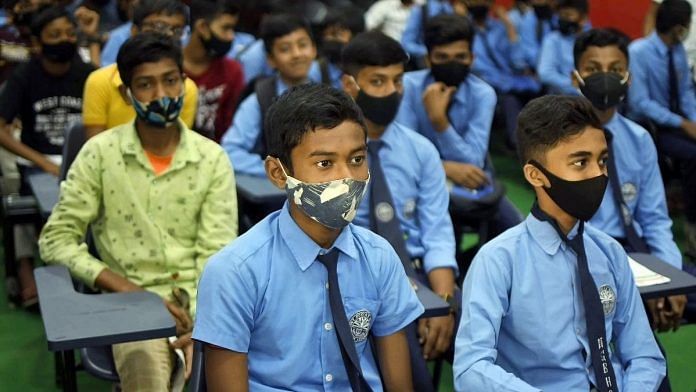• The pandemic caused the worst shock to global education and learning in recorded history, says an international study.
• 70% of 10-year-olds in low- and middle-income countries cannot pass a basic literacy test and are now considered in ‘learning poverty’.
• Children whose education was disrupted could lose $21 trillion in future earnings, it’s estimated.
• Governments are urged to use proven, cost-effective strategies to rapidly repair the damage.
We’re facing a global “learning catastrophe” because of the way the education of millions of children was disrupted by the Covid-19 pandemic, according to a report from leading world bodies, including the World Bank and UNESCO.
The report says 70% of 10-year-olds in low- and middle-income countries are now unable to read and understand a simple written text – the measure of learning poverty.
That could mean the generation of students whose schooling was hit by Covid-19 stand to lose a massive $21 trillion in lifetime earnings – more than earlier estimates and amounting to 17% of today’s global GDP.
Worst-ever shock to education
The research comes from international agencies that have pledged to work together to confront what they describe as the “worst shock to education and learning in recorded history”.
UNICEF, the UK government’s Foreign Commonwealth and Development Office (FCDO), USAID and the Bill & Melinda Gates Foundation joined the World Bank and UNESCO in publishing the report.
“We can’t let children’s learning become yet another casualty of the Covid-19 pandemic,” said UNICEF Global Director of Education Robert Jenkins.
For some students, the damage might be irreversible. In Uganda, Kauthara Shadiah Nabasitu, aged 15, won’t be returning to the classroom after starting work to support her family while her school was closed to stop Covid-19 spreading. “I am a person who wants to study,” she told the New York Times. Uganda had some of the world’s longest school shut-downs during the pandemic.
All regions saw rises in learning poverty, but Latin America and the Caribbean were the worst affected, the report shows. In these areas, an estimated 80% of children are unable to understand a simple written text by the time they leave primary school. That’s up from around 50% before the pandemic.
The next largest increase was seen in South Asia, where the report’s authors say 78% of children are now likely to fail the same basic literacy test (compared with 60% pre-pandemic).
Also read: 11 million girls might not return to school due to Covid-19. Education system needs a reset
Reversing the damage will not be enough
In Sub-Saharan Africa, the rise in learning poverty was smaller because school closures were usually brief. But even here, Covid-19 had disastrous consequences, and learning poverty now affects a staggering 89% of children in the region.
The report’s authors warn that urgent action is needed to avert a catastrophe, and simply reversing the damage the pandemic did to education will not be enough. They say new data shows learning poverty before Covid-19 was worse than anyone thought.
“These estimates ring the alarm louder than ever,” says UNESCO Assistant-Director General for Education Stefania Giannini. “We must invest in holistic and transformative policies that act on the multiple causes of the learning crisis.”
How to make a rapid recovery
National coalitions for learning recovery – including governments, families, educators and businesses – will be needed, says the report: “It is not enough for children to return to school. The curriculum and teaching must adjust to meet students’ learning needs.” Countries urgently need to focus on the most cost-effective ways to counter learning poverty, says the World Bank, by following its RAPID framework.
Under the framework, education systems should:
Reach every child and keep them in school
Assess learning levels regularly
Prioritize teaching the fundamentals
Increase the efficiency of instruction, including through catch-up learning
Develop psychosocial health and wellbeing.
“We have solutions that can work at scale and in government systems,” says Dr Benjamin Piper, Director of Global Education at the Bill & Melinda Gates Foundation. “Committing to substantial learning recovery programmes is a start, but the composition of those programmes matter: measure learning outcomes, but also invest in improving instruction through structured pedagogy or teaching at the right level interventions while increasing instructional time.”
A unique window of opportunity
Strategic investment in education could be part of the broader recovery from Covid-19. A World Economic Forum study highlights the scale of the potential benefits, estimating an additional year of education leads to up to 15% higher lifetime earnings.
The report says countries have a “unique window” to transform education as we recover from those long months when the pandemic emptied classrooms and locked school gates around the world.
Simon Read, Senior Writer, Formative Content
The article originally appeared in the World Economic Forum.
Also read: India is seeing its worst ‘edu-cide’. First survey after Covid shows



